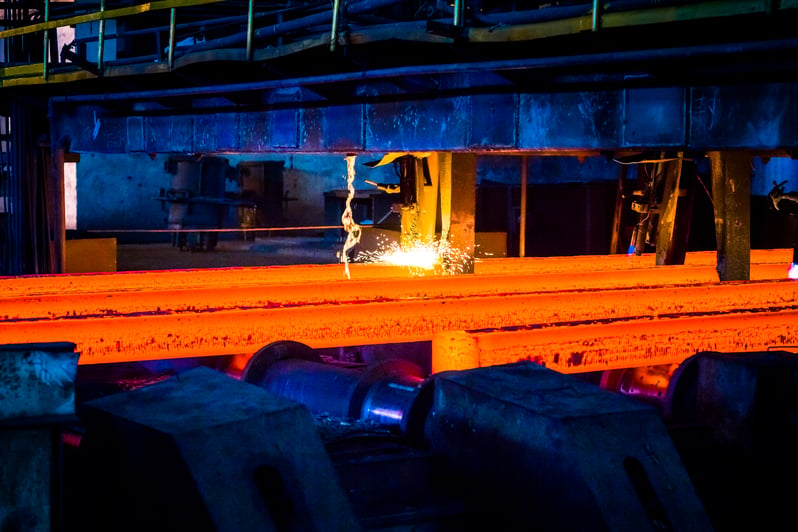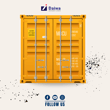
The domestic prices of HRC in China witnessed an unexpected and significant surge, surpassing the previous week's levels. This surprising upward trend can be attributed to a government-ordered reduction in production, resulting in a decrease in supply and subsequent price hikes. On July 28th, Japanese export scrap prices (H2 grade) experienced a slight decline compared to the previous week. In Vietnam, despite the challenging conditions of a sluggish domestic steel market and a low-construction season during the rainy period, domestic rebar prices managed to maintain stability throughout the week.
Let us support and share with you in this blog your business decision during this down-trend market around the world at the end of Jul and starting Aug 2023.
China
In the fast-paced world of the global steel market, China has once again made waves with its recent price increases. Domestic HRC prices in China saw a surprising increase, reaching Yuan 4,010/t ($561/t) on Jul 29th, which was a significant rise of Yuan 160/t ($22/t) from the previous week. This unexpected upward trend can be attributed to a reduce production order from the government, which has led to a decrease in supply and subsequently driven up prices. Not only have domestic prices soared, but export HRC prices have also experienced a notable increase. The price of export HRC rose by $30/t, reaching $585/t FOB China port. This surge can be seen as a direct result of the government's production order, which has limited the availability of steel for export. Similarly, domestic rebar prices in China have also seen an upward trajectory. With an increase of Yuan 20/t ($3/t), domestic rebar prices reached Yuan 3,820/t ($528/t).
Japan
Japanese export scrap prices (H2 grade) experienced a slight decline on Jul. 28th, falling by Yen 1,000/t ($7/t) compared to the previous week. This drop can be attributed to weakened demand from South Korea and Vietnam, which has put downward pressure on prices. Despite this decrease, domestic mills in Japan have been able to maintain their scrap prices at Yen 50,500/t ($361/t) due to their strong financial performance. This stability in domestic prices reflects the healthy state of the local steel industry and indicates that Japanese mills are able to sustain their pricing levels even in the face of fluctuations in the global market.
Europe
HRC prices in Northern Europe experienced a slight decrease of EUR 5/t ($6/t) on July 27th, settling at EUR 655/t ($726/t). Conversely, the price of HRC in Italy saw a modest increase of EUR 3/t ($3/t), reaching EUR 643/t ($712/t). Buyers in the market anticipate a period of soft performance until the end of the summer holidays, as many mills are expected to halt their production during this time. This temporary slowdown in production is likely to have an impact on the overall market dynamics, resulting in relatively stable prices during this period. However, it is important for businesses to closely monitor the market and make informed decisions to navigate through this phase successfully.
America
Price of US domestic HRC at $943/MT ($857 per short ton) on Jul 26th, rose by $19/MT ($17 per short ton) with limited activity amid low inventory level. This increase can be attributed to the steady demand for HRC in the US market, despite the challenges posed by low inventory levels. The balance between supply and demand has played a crucial role in maintaining the stable performance of the US plate price at $1,650/MT ($1,500 per short ton) for the fourth consecutive week.
In Brazil, the HRC price experienced a reduction from Real 4,138/t ($863/t) on Jul.14th to Real 3,776/t ($788/t) one week later, reflecting a decrease of Real 362/t ($75/t). This decline can be attributed to weakened demand in the Brazilian market, particularly from the struggling automotive industry. Conversely, the sales of flat steel in Brazil remained at a low level and dropped by 6% compared to the same period last year, primarily due to the persistently weak demand from the automotive sector.
Viet Nam
Despite the challenging conditions of a slow steel domestic market and a low construction season during the rainy season, domestic rebar prices have managed to maintain stability at $586/t throughout the week. This resilience can be attributed to the steady demand for rebar in the local market, as construction projects continue despite the unfavorable weather conditions. On the other hand, the price of imported HRC from China has seen a slight increase, reaching $590/t. This $10/t increase compared to the previous week can be attributed to a rise in prices by domestic steelmakers. As they raised their prices, the imported HRC market responded by adjusting their offers accordingly. Despite this increase, imported HRC remains competitive in the market, providing an alternative option for buyers.
If you have any questions about the purchase method, delivery date, or request for a quotation of lance products, please click the link below to complete the inquiry form so that we can respond to you promptly.
- Category:
- Steel Market Move
- Keyword:
- HRC prices








